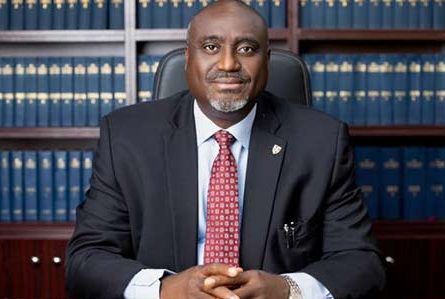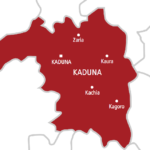By John Chuks Azu & Adelanwa Bamgboye, Lagos
The long-running debate over the perception of corruption in Nigeria’s judiciary has recently assumed a new level following the inauguration of the new Chief Justice of Nigeria, Justice Olukayode Ariwoola.
Suggestions of corruption against the judiciary are made by members of the public and sometimes lawyers in their media engagements.
This perception was worsened by the Department of State Services (DSS)’s unprecedented midnight raids on the residences of judges on October 8, 2016, purportedly targeted at alleged corrupt judges, although most of the judges were discharged and acquitted of wrong-doing.
Also, the 2019 survey by Transparency International titled “Global Corruption Barometer Africa 2019: Citizens Views and Experience on Corruption”, which ranked the Nigeria police, the parliament, and the judiciary on top of the most corrupt institutions in the country, did not help the image of the Nigerian judiciary.
Therefore, the President of the Nigerian Bar Association (NBA), Yakubu Maikyau (SAN), reopened the debate on October 15 during the reception in his honour by the Nigerian Law School Class of 1990 in Abuja, where he charged lawyers to speak up in defence of the integrity of the nation’s judiciary.
“Let us speak up so the country and beyond will know that we are not a people called to this profession that can be compromised,” he said.
“The fact that there may be some bad eggs amongst us, and this I say for both the bench and the bar, does not justify the characterization of the entire judiciary and the legal profession as generally corrupt.
“The judiciary and indeed the legal profession in Nigeria consist of distinguished men and women that have worked and are still working honestly, sincerely and with integrity to contribute their quota to the development of this nation.
“The fact that the toe in a body has turned gangrenous does not make the entire body rotten. And if the toe is so infected, the way to save the body is to amputate the toe.
“That is what we must do as members of the legal profession; either on the bench or bar, and we must speak loudly to the nation about who we truly are, to correct that negative perception.
“If we do not do so, it will be an abdication of duty on our part, and if we completely lose the confidence of the public, resort to self-help, the attendant chaos will be inevitable. We must break the silence.”
Maikyau further gave an example of a justice of the Supreme Court, Justice Amina Augie, whom he said hasn’t had a personal car since she began serving on the bench.
“All the cars that my lord has used since high court have been cars given to her by reason of the offices my lord has served,” he said.
Maikyau also described the Chief Justice of Nigeria, Justice Olukayode Ariwoola, who was also the special guest of honour, as a man whose background has no trace of corruption.
Speaking on the matter, the former chairman of the NBA, Ikorodu Branch, Bayo Akinlade, said nobody can blame the citizens for accusing the judiciary of corruption because of the declining quality of justice delivery.
He blamed the rot in the judiciary on the low use of technology in the filing, administrative, and judicial procedures as bribes and tips are exchanged in the human interface because of the economic situation in the country.
“Basically, the judiciary is corrupt because of the human elements involved; lack of infrastructure, and lack of focus by the government to empower the institution to make it independent enough for it not to require anything else from the government,” Akinlade said.
For his part, the convener of Access to Justice, Joseph Otteh, cited the incidences emanating from the judiciary itself as a major cause of the public perception of corruption in the judiciary, although the National Judicial Council (NJC) regularly dealt with petitions of impropriety against judicial officials.
“The number of cases by the NJC on corruption is a lot higher than in any functional judicial system.
“The rate at which NJC substantiates these cases is higher than in other countries, e.g. Ghana or South Africa,” Otteh said.
He said the UNODC, which produces annual reports on countries, had in one of its studies also listed the Nigerian judiciary among the corrupt institutions in Nigeria, although not every judicial officer in Nigeria is corrupt or compromised.
While insisting that no functional judiciary should have the rate of substantiated corruption as in Nigeria, Otteh maintained that the Nigerian judiciary is underreported.
“We cannot say that all judges in Nigeria are compromised; you cannot say every member of the judiciary is corrupt.
“There is very serious concern that the problem of corruption in the judiciary is systematic.
“A lot of honest judges are stigmatised by the activities of other erring judges. We agonise about corruption.”
Meanwhile, Ugochukwu Osuagwu Esq. has pointed to the awards and other forms of gestures by the executive to the judiciary as a major point of compromise for the judiciary.
He pointed to the recent award of the Grand Commander of the Order of the Niger, the second highest national honour, which he said should be awarded only at retirement and not on resumption of office.
During his inauguration on October 12 in a substantive capacity, Justice Olukayode Ariwoola, reiterated his earlier pledge in June, while taking the oath as acting CJN, on the reform of the judiciary.
“Politicians should allow the judiciary to function; the law is not static and that is why the National Assembly has continued to amend the laws and it is the laws that the courts apply to the facts available,” he said.




